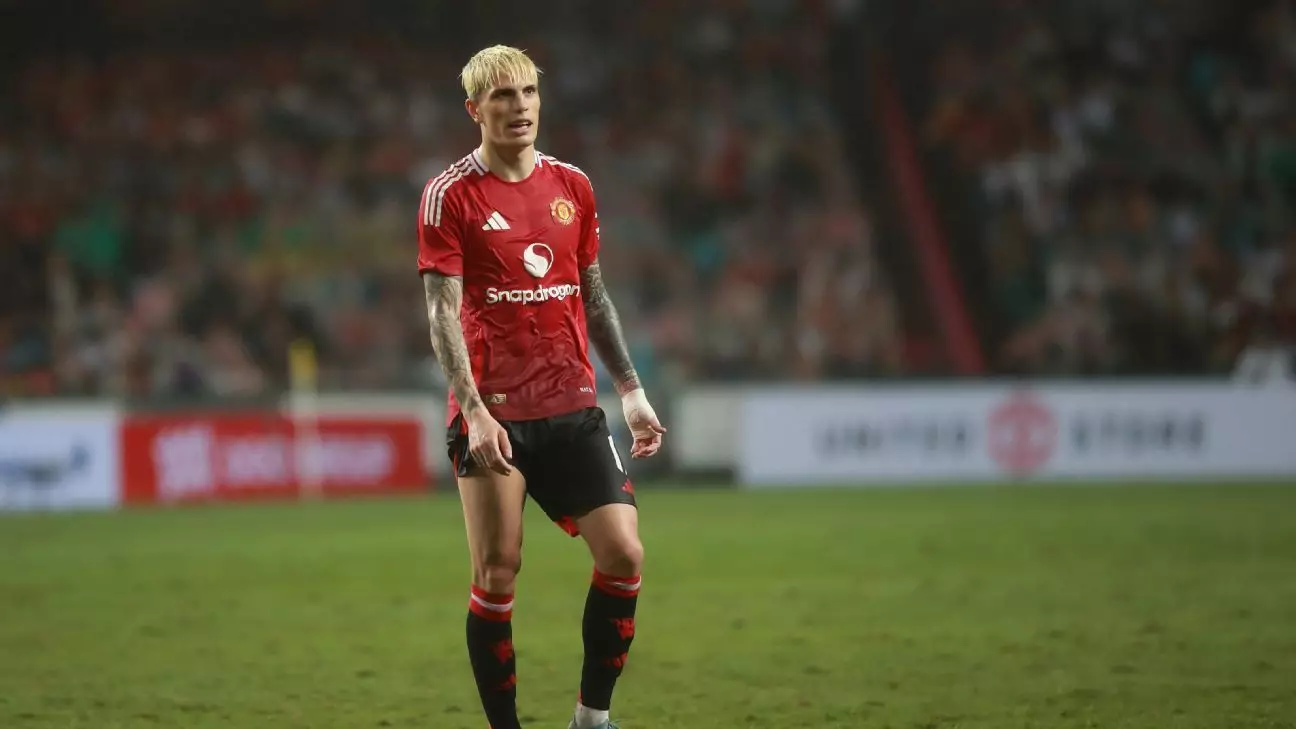Manchester United’s latest transfer saga reflects a club at a crossroads—balancing tradition with the harsh realities of modern football. Under Ruben Amorim’s unconventional leadership, the club is adopting a flexible, sometimes controversial strategy to manage its roster. Rather than rigidly insisting that every outcast be sold immediately, Amorim emphasizes the importance of maintaining player integrity and opportunity within the squad. His stance suggests a belief that talent should never be discarded hastily but rather given the chance to flourish or find the right environment. This approach, while risky, demonstrates a football philosophy rooted in patience and practicality, challenging the status quo of aggressive transfer deadlines.
As many clubs accelerate their pursuit of new players, United’s handling of players like Alejandro Garnacho, Antony, Jadon Sancho, and Tyrell Malacia signals a different mindset—one that values long-term development over short-term fixes. Amorim’s declaration that these players could rejoin the team if suitable offers don’t materialize introduces an element of strategic uncertainty. It invites a nuanced game of patience, negotiation, and respect for player aspirations. This could either be a masterstroke that preserves squad harmony or a gamble that destabilizes team cohesion if not managed carefully.
Player Autonomy and the Fight for First-Team Opportunities
What stands out prominently is Amorim’s recognition of individual player motivations. His acknowledgment that some players seek new challenges while others need a fresh environment to succeed underscores a modern, player-centric approach. In an era where players are increasingly autonomous, viewing their careers as personal brands and ambitions, the manager’s honesty fosters an environment of transparency. It signals to the squad that their aspirations are valued, which can be vital for morale—and ultimately, performance.
This candidness also reflects a subtle shift in club management. Instead of forcing players out or keeping them against their will, United appears open to facilitating their moves, provided the club’s valuation is met. Amorim confidently states that the club has set financial benchmarks, and if they are not met, the players remain part of Manchester United. This perspective empowers the club to avoid unnecessary concessions and ensures that they retain leverage in negotiations, all while respecting players’ desires. The underlying message is clear: the club values its assets but recognizes that player happiness and potential fit are equally crucial.
The Power of Strategic Patience in a Competitive Environment
Amorim’s strategic patience extends beyond player negotiations to the broader squad composition. With the club currently facing a potential shortage of a definitive No. 9 striker, the manager’s willingness to start the season with the current squad demonstrates confidence and a pragmatic outlook. His statement that he would be “happy” with the existing group exemplifies a forward-thinking approach—prioritizing squad unity, tactical coherence, and the readiness of players like Rasmus Hojlund and Josh Zirkzee.
This stance also reflects a broader philosophy: in high-stakes environments like football, success often depends on adaptability and belief in internal resources. Instead of rushing to sign a new striker, Amorim is emphasizing the importance of developing the existing talent and fostering competition. By doing so, the club can build resilience, pushing players to elevate their game rather than relying solely on external reinforcement. This approach not only saves financial resources but cultivates a culture of accountability, where players understand that consistent effort and improvement are the pathways to securing their place.
A Forward-Looking Vision for Manchester United
In essence, Manchester United’s current strategy under Amorim embodies a shift toward stability and internal growth. Signed players like Matheus Cunha and Bryan Mbeumo indicate that the club is actively strengthening its options, yet the focus remains on nurturing a cohesive team rather than rushing to fill every gap with high-profile acquisitions. The manager’s openness about the possibility of starting the season without a traditional No. 9 reveals confidence in the squad’s potential—a crucial mindset amid the unpredictable transfer market.
Furthermore, Amorim’s leadership emphasizes integrity and communication, fostering an environment where players are encouraged to make decisions that serve their careers while aligning with club objectives. This mindset could prove transformative, setting a precedent for how elite teams manage transitional periods—placing patience, development, and internal competition above reactive signings. Ultimately, United’s willingness to embrace uncertainty and empower its players might be the catalyst needed for a fresh chapter of sustained achievement.

